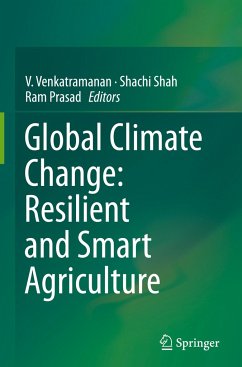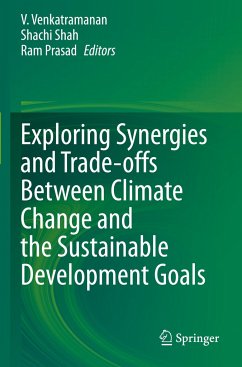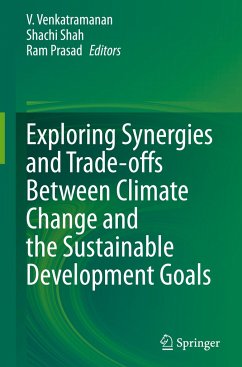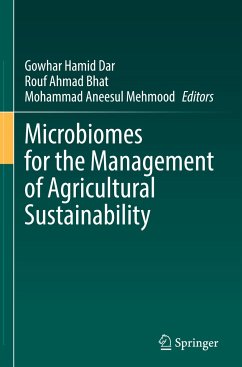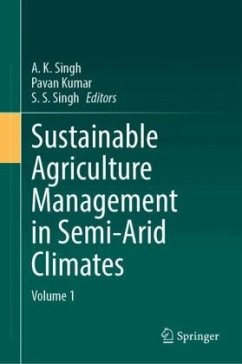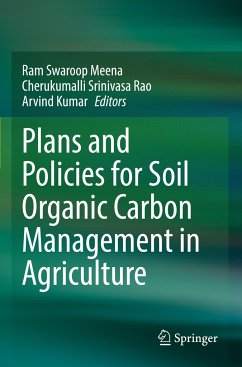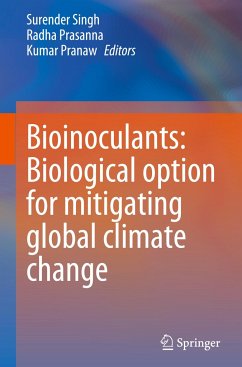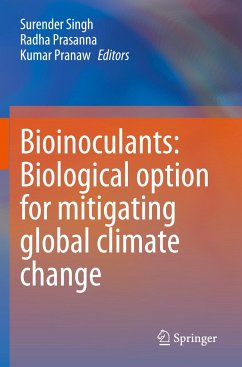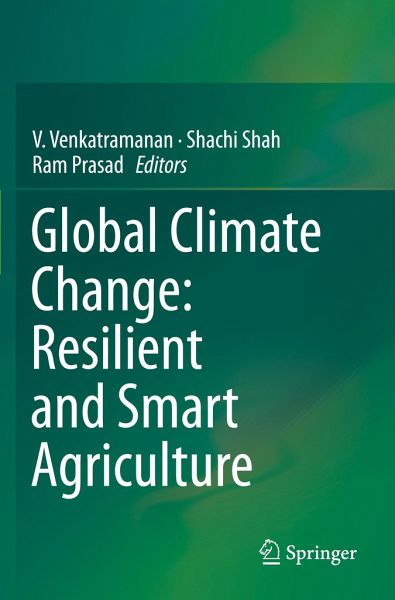
Global Climate Change: Resilient and Smart Agriculture
Versandkostenfrei!
Versandfertig in 6-10 Tagen
136,99 €
inkl. MwSt.

PAYBACK Punkte
68 °P sammeln!
This book provides essential insights into methods and practices of 'Climate-smart Agriculture,' which is driven by the principles of climate resilience and smart resource use in agricultural production. Climate-smart agriculture is a key policy instrument for achieving poverty eradication and a hunger-free world, as well as mitigating the effects of climate change. This book discusses in detail climate-smart agricultural technologies and practices that can reduce the vulnerability of agricultural systems, improve the livelihoods of farmers and other stakeholders, and reduce the greenhouse gas...
This book provides essential insights into methods and practices of 'Climate-smart Agriculture,' which is driven by the principles of climate resilience and smart resource use in agricultural production. Climate-smart agriculture is a key policy instrument for achieving poverty eradication and a hunger-free world, as well as mitigating the effects of climate change. This book discusses in detail climate-smart agricultural technologies and practices that can reduce the vulnerability of agricultural systems, improve the livelihoods of farmers and other stakeholders, and reduce the greenhouse gas emissions from crop production and livestock husbandry.
The agriculture, forestry and other land use (AFOLU) sector produces roughly 10-12 gigatons of CO2-equivalent per year; therefore, sustainable practices for agriculture and related land use hold immense potential to mitigate climate change. The potential impacts of climate variability and climate change on agriculture areextensively documented and articulated, especially with regard to global and national environmental agendas that call for innovation, transformation and climate-resilient advances in agriculture. As the book demonstrates, climate-smart agriculture offers an excellent tool for boosting agricultural output to feed the growing global population; for reducing greenhouse gases emissions from agriculture and other land use; and for protecting agricultural production systems from the impending dangers of climate change.
The agriculture, forestry and other land use (AFOLU) sector produces roughly 10-12 gigatons of CO2-equivalent per year; therefore, sustainable practices for agriculture and related land use hold immense potential to mitigate climate change. The potential impacts of climate variability and climate change on agriculture areextensively documented and articulated, especially with regard to global and national environmental agendas that call for innovation, transformation and climate-resilient advances in agriculture. As the book demonstrates, climate-smart agriculture offers an excellent tool for boosting agricultural output to feed the growing global population; for reducing greenhouse gases emissions from agriculture and other land use; and for protecting agricultural production systems from the impending dangers of climate change.





